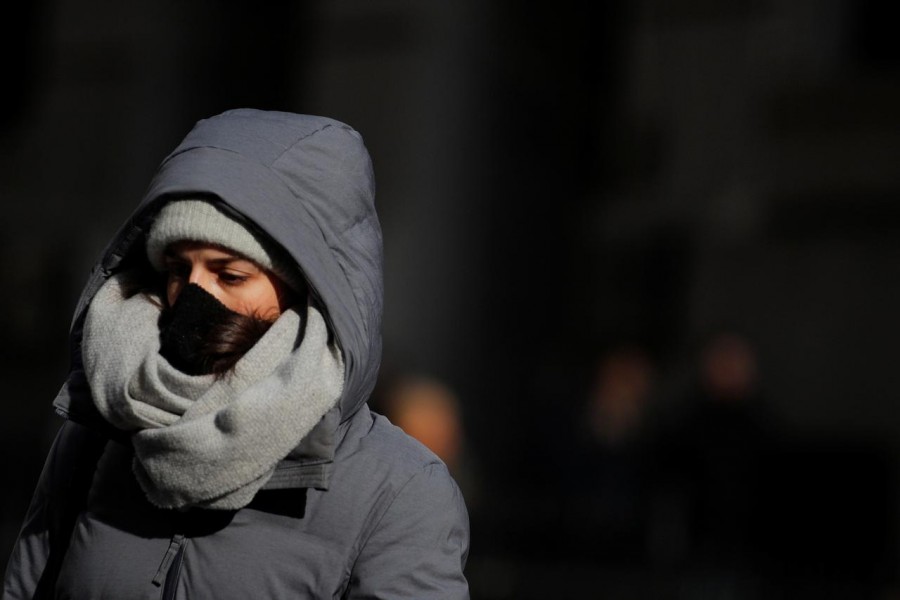
Published :
Updated :

The following is a roundup of some of the latest scientific studies on the novel coronavirus and efforts to find treatments and vaccines for Covid-19, the illness caused by the virus.
Two masks likely better than one, CDC says
Making sure a mask fits snugly and use of two masks is likely to significantly reduce a person's exposure to the coronavirus, according to studies by US Centers of Disease Control and Prevention (CDC) researchers. In lab tests, they found wearing a cloth mask over a three-ply medical procedure mask, and knotting the ear loops of the medical mask so that it fits snugly and then tucking the excess material close to the face, helped reduce exposure to potentially infected aerosols by more than 90 per cent. In one experiment, an un-knotted medical procedure mask alone blocked 42.0 per cent of particles from a simulated cough, and the cloth mask alone blocked 44.3 per cent. The double mask combination blocked 92.5 per cent of the cough particles, they reported on Wednesday in CDC's Morbidity and Mortality Weekly Report. In an #AskReuters Twitter Chat on Tuesday, Dr. Charles Holmes, director of the Center for Innovation in Global Health at Georgetown University, recommended wearing the most effective mask on the inside. For example, he said, wear a surgical mask over a KN95 mask, or a cloth mask over a surgical mask.
Inhaled asthma drug limits illness
A commonly used asthma treatment appears to reduce the need for hospitalisations and recovery time for Covid-19 patients if given within seven days of symptoms appearing, researchers at the University of Oxford have found. The 28-day study of 146 patients found the inhaled steroid, budesonide, reduced the risk of urgent care, emergency room visits or hospitalisation by 90 per cent when compared with usual care. Patients treated at home with budesonide also had a quicker resolution of fever and fewer persistent symptoms. In a report posted on Monday on medRxiv ahead of peer review, the researchers said they undertook the trial because they noticed that patients with chronic respiratory diseases like asthma, who are often prescribed inhaled steroids such as budesonide, were not needing to be hospitalised for Covid-19 as often as expected. "I am heartened that a relatively safe, widely available and well studied medicine ... could have an impact on the pressures we are experiencing during the pandemic," said study leader Mona Bafadhel.
Experimental drug may speed viral clearance
An experimental antiviral drug significantly sped up the time it took to "clear" the virus in Covid-19 patients who did not need to be hospitalised, Toronto researchers have found. In a small trial, patients who received a single injection of peginterferon-lambda were more than four times as likely to test negative for the virus within seven days as patients who received a placebo. "The more rapid viral load decline and higher clearance rate were most pronounced in those with high viral loads" the authors reported on Friday in The Lancet Respiratory Medicine. "The magnitude of the viral load decline compared with that of placebo was much greater ... than has been reported with monoclonal antibody therapies," they added. "This treatment has large therapeutic potential," study leader Dr. Jordan Feld of Toronto Center for Liver Disease said in a statement. Respiratory symptoms also appeared to resolve faster with peginterferon-lambda therapy, but the trial was too small to demonstrate a statistically significant difference. Feld's team is planning a much larger trial, and studies are already underway testing the treatment in hospitalized patients.
Cloth coverings in public spaces may slow virus spread
Covering furniture in hospitals and offices with surfaces that speed evaporation of respiratory droplets will slow the spread of Covid-19, a new study suggests. Earlier research found that the virus remains active for a longer time on impermeable surfaces. In the new study, researchers found that once respiratory droplets disappear, a thin liquid film remains over the exposed solid area that serves as a medium for virus survival. That thin film evaporates much faster on porous surfaces, they noted in a report published Wednesday in Physics of Fluids. They found that the virus can survive four days on glass and seven days on plastic or stainless steel, but only two days on cloth and three hours on paper. "Based on our study, we recommend that furniture in hospitals and offices made of impermeable material, such as glass, stainless steel, or laminated wood, be covered with porous material, such as cloth, to reduce the risk of infection upon touch," coauthor Sanghamitro Chatterjee of the Indian Institute of Technology Bombay in Mumbai said in a statement. Her team says seats in public places could also be covered with cloth to lessen the risk of disease spread.


 For all latest news, follow The Financial Express Google News channel.
For all latest news, follow The Financial Express Google News channel.